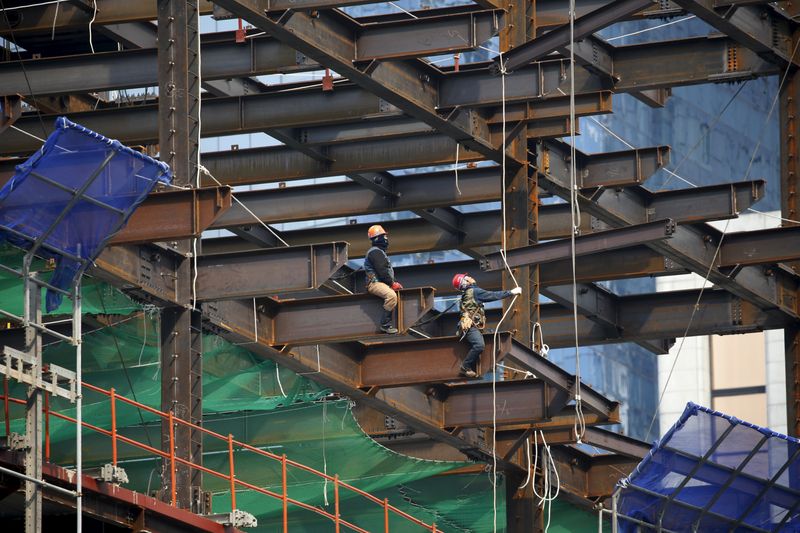
By Jihoon Lee
SEOUL (Reuters) – South Korea's factory activity contracted in December, with manufacturers' sentiment turning pessimistic for the first time since mid-2020 due to uncertainty over U.S. trade and domestic politics, a private sector survey showed on Thursday.
The purchasing managers' index (PMI) for manufacturers in Asia's fourth-largest economy, compiled by S&P Global, fell to 49.0 last month from 50.6 in November, falling below the 50 level that separates expansion from contraction for the third time since August.
Sub-indicators showed that output contracted for the fourth month in a row and the decline was steeper than the previous month, while new orders also fell.
The deterioration in demand was linked to weak customer confidence in the domestic market, according to the survey, while export orders grew only marginally.
The gloom was reflected in the morale of manufacturers for the coming year, which fell below the fifty-fifty threshold separating optimism and pessimism for the first time since July 2020, and recorded its lowest levels in four and a half years. Excluding the COVID-19 pandemic period, these were the worst since the data series began in April 2012.
Last month, South Korean President Yoon Suk-yeol was impeached after imposing short-lived martial law on December 3, increasing political uncertainty and weakening consumer and business confidence.
“The pessimistic outlook often stemmed from concerns surrounding domestic economic conditions, as well as potential US protectionist policies,” said Osama Bhatti, economist at S&P Global Market Intelligence.
US President-elect Donald Trump pledged last year to impose major tariffs on the US's three largest trading partners – Canada, Mexico and China – which are also expected to affect South Korean companies that operate factories in these countries.

In the latest survey, companies indicated that weak external demand in China and the United States offset improvement in Europe and some of the Asia-Pacific region.
South Korea's trade-dependent economy barely grew in the third quarter amid a slowdown in exports. The country's export growth is expected to slow to 1.5% in 2025, from 6.3% in 2024, according to the central bank.







